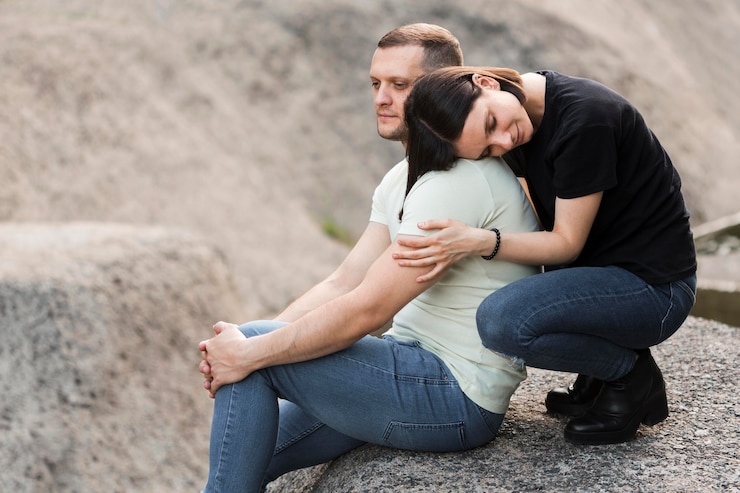Navigating a relationship after addiction can be a challenging and complex journey for couples. At Couples Rehab, we understand the unique dynamics and struggles that arise when love intersects with addiction recovery. While addiction can strain even the strongest relationships, it is possible for couples to rebuild trust, communication, and intimacy as they work towards healing together. With the right support and resources, couples can not only survive but thrive in their relationship after addiction.
Couples Rehab Services
Understanding the Impact of Addiction on Relationships
Addiction has a profound impact on relationships, often causing trust issues, communication breakdowns, and emotional distance between partners. The behaviors associated with addiction, such as lying, manipulation, and neglect, can erode the foundation of trust and intimacy that is essential for a healthy relationship. Partners may feel hurt, betrayed, and resentful as they witness their loved one struggle with addiction, leading to feelings of anger, frustration, and hopelessness. Additionally, the strain of addiction can overshadow the positive aspects of the relationship, leaving couples feeling disconnected and isolated from each other.
Rebuilding Trust and Communication
Rebuilding trust and communication is essential for couples to heal and strengthen their relationship after addiction. Open and honest communication lays the groundwork for rebuilding trust and creating a safe space where both partners can express their thoughts, feelings, and concerns without fear of judgment or criticism. Couples therapy provides a supportive environment where partners can address underlying issues, learn effective communication skills, and work through challenges together. By fostering empathy, understanding, and vulnerability, couples therapy helps couples reconnect emotionally and rebuild trust in each other.
Setting Healthy Boundaries
Setting healthy boundaries is crucial for couples to maintain their individual well-being and protect the integrity of their relationship after addiction. Boundaries help couples establish clear expectations, responsibilities, and limits within the relationship, preventing relapse triggers and enabling both partners to prioritize their recovery and personal growth. Couples therapy helps couples identify and negotiate boundaries that respect each other’s needs and promote mutual respect, trust, and accountability. By establishing boundaries, couples create a framework for healthy communication, conflict resolution, and problem-solving, strengthening their relationship and reducing the risk of relapse.

Healing from Trauma and Betrayal
Addiction often leaves a trail of trauma and betrayal in its wake, affecting both partners on a deep emotional level. Healing from trauma and betrayal requires compassion, patience, and understanding from both partners, as well as professional support and guidance. Individual therapy provides a safe space for partners to process their emotions, explore underlying trauma, and develop coping strategies for managing triggers and flashbacks. Couples therapy helps partners navigate the complexities of betrayal and rebuild emotional intimacy and trust through empathy, forgiveness, and reconciliation.
Reconnecting Through Intimacy and Affection
Intimacy and affection play a crucial role in rebuilding the emotional bond between partners after addiction. Reconnecting physically and emotionally helps partners feel loved, valued, and supported, strengthening their connection and fostering a sense of closeness and belonging. Couples therapy provides a safe and supportive environment where partners can explore their intimacy needs, address barriers to physical and emotional closeness, and rediscover the joy and pleasure of being together. By prioritizing intimacy and affection, couples deepen their emotional connection and create a strong foundation for lasting love and recovery.
Cultivating Resilience and Hope
recovery from addiction is a journey filled with ups and downs, but with resilience and hope, couples can overcome obstacles and create a brighter future together. Cultivating resilience involves embracing challenges, learning from setbacks, and adapting to change with strength and determination. Couples therapy helps couples develop resilience by fostering a growth mindset, encouraging problem-solving skills, and promoting a sense of optimism and hope for the future. By focusing on their strengths, resources, and shared goals, couples can weather the storms of addiction and emerge stronger, wiser, and more connected than ever before.
A Journey of Healing and Growth
In conclusion, love after addiction is possible, but it requires commitment, effort, and support from both partners. At Couples Rehab, we believe in the power of love to overcome addiction and transform relationships. Through therapy, communication, and mutual support, couples can rebuild trust, intimacy, and connection as they navigate the challenges of recovery together. If you and your partner are struggling with addiction, we’re here to help. Contact us today to learn more about our couples therapy programs and take the first step towards healing and growth in your relationship.

FAQ’s
1. What is the impact of addiction on relationships?
- Addiction can strain relationships by causing communication breakdowns, trust issues, and emotional distance. It often leads to conflicts, misunderstandings, and feelings of betrayal, which can take a toll on the relationship’s health and stability.
2. Can love survive addiction in a relationship?
- Yes, love can survive addiction in a relationship, but it requires dedication, effort, and support from both partners. Recovery is a challenging journey, but with commitment to sobriety and mutual understanding, couples can overcome obstacles and rebuild their bond.
3. How does addiction affect trust in a relationship?
- Addiction can erode trust in a relationship as it often involves lying, secrecy, and broken promises. Partners may struggle to believe each other and may question the reliability of their commitment, leading to feelings of insecurity and doubt.
4. What are some signs that a relationship is struggling with addiction?
- Signs that a relationship is struggling with addiction may include increased conflicts, decreased intimacy, financial problems, and social isolation. Partners may also notice changes in behavior, mood swings, and neglect of responsibilities.
5. Is couples therapy beneficial for addressing addiction-related issues?
- Yes, couples therapy can be highly beneficial for addressing addiction-related issues as it provides a safe space for partners to communicate openly, express their concerns, and work through challenges together. Therapists can help couples develop healthier coping strategies and strengthen their relationship bonds.
6. How can couples rebuild trust after addiction?
- Rebuilding trust after addiction requires honesty, transparency, and consistent actions from both partners. It involves acknowledging past mistakes, setting clear boundaries, and demonstrating reliability and accountability over time.
7. Can addiction recovery strengthen a relationship?
- Yes, addiction recovery can strengthen a relationship by fostering greater empathy, communication, and resilience. As partners support each other through the challenges of recovery, they often develop a deeper understanding and appreciation for one another.
8. What role does forgiveness play in overcoming addiction in a relationship?
- Forgiveness plays a crucial role in overcoming addiction in a relationship as it allows partners to let go of resentment, anger, and hurt from past actions. It enables healing and promotes reconciliation, paving the way for a healthier and more positive future together.
9. How can couples support each other during addiction recovery?
- Couples can support each other during addiction recovery by being empathetic, patient, and non-judgmental. They can attend therapy together, participate in recovery programs, and celebrate each other’s milestones and achievements.
10. Is it possible to rebuild a loving and healthy relationship after addiction?
- Yes, it is possible to rebuild a loving and healthy relationship after addiction with dedication, perseverance, and professional support. Couples who are committed to each other’s well-being and growth can overcome the challenges of addiction and create a fulfilling life together.

